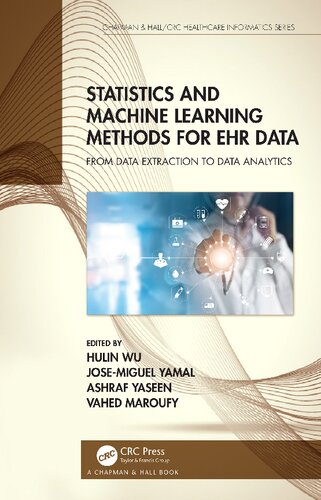

Most ebook files are in PDF format, so you can easily read them using various software such as Foxit Reader or directly on the Google Chrome browser.
Some ebook files are released by publishers in other formats such as .awz, .mobi, .epub, .fb2, etc. You may need to install specific software to read these formats on mobile/PC, such as Calibre.
Please read the tutorial at this link: https://ebookbell.com/faq
We offer FREE conversion to the popular formats you request; however, this may take some time. Therefore, right after payment, please email us, and we will try to provide the service as quickly as possible.
For some exceptional file formats or broken links (if any), please refrain from opening any disputes. Instead, email us first, and we will try to assist within a maximum of 6 hours.
EbookBell Team

0.0
0 reviewsThe use of Electronic Health Records (EHR)/Electronic Medical Records (EMR) data is becoming more prevalent for research. However, analysis of this type of data has many unique complications due to how they are collected, processed and types of questions that can be answered. This book covers many important topics related to using EHR/EMR data for research including data extraction, cleaning, processing, analysis, inference, and predictions based on many years of practical experience of the authors. The book carefully evaluates and compares the standard statistical models and approaches with those of machine learning and deep learning methods and reports the unbiased comparison results for these methods in predicting clinical outcomes based on the EHR data.
Key Features:
The use of EHR/EMR analysis requires close collaborations between statisticians, informaticians, data scientists and clinical/epidemiological investigators. This book reflects that multidisciplinary perspective.